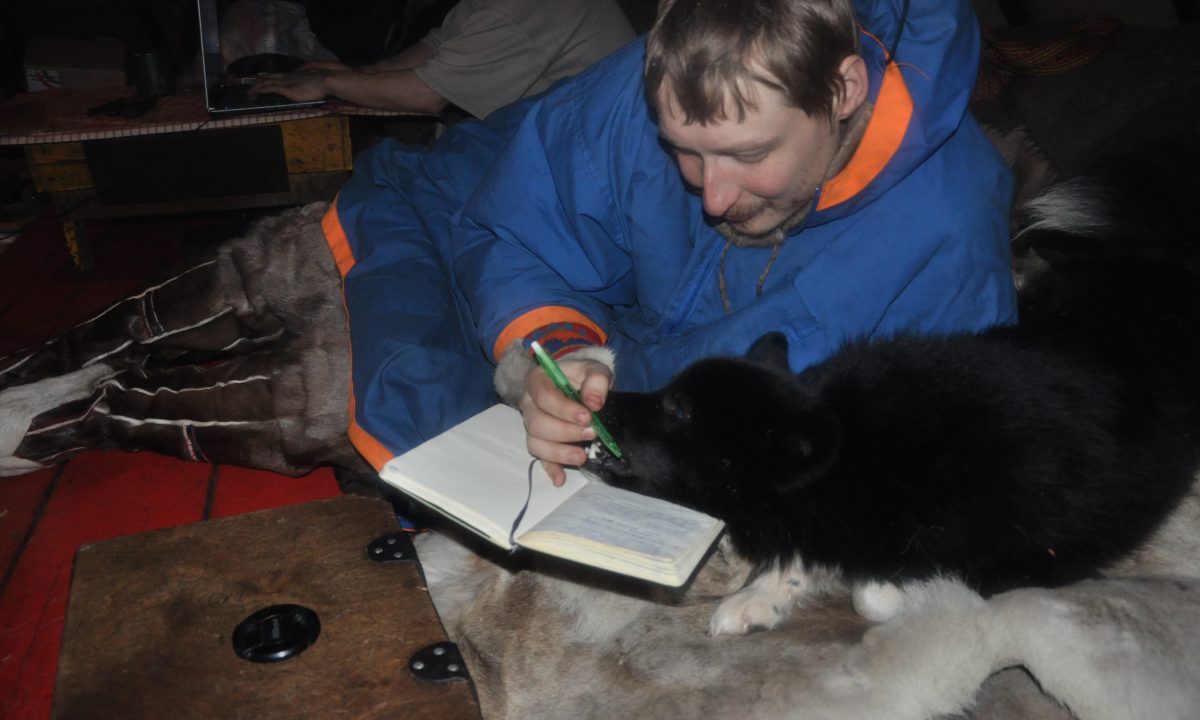Meet REXSAC PhD students: Dmitry Arzyutov
Discover the tenth episode of our Q&A series with REXSAC PhD students. This time meet Dmitry Arzyutov, a doctoral candidate at the Division of History of Science, Technology and Environment, KTH Royal Institute of Technology (Stockholm). As a historical anthropologist, he is interested in the intersections of indigenous studies, history and social studies of science and environmental history/anthropology.
What drew you to the area/topic of your studies?
Being trained as an anthropologist and having conducted numerous field works in the Arctic, Siberia and on Russia/China/Mongolia borderlands, I always thought to expand my expertise towards the environment and history without overlooking the ethnographic contexts. All that significantly affected my way of writing which balances between three realms: social anthropology, environmental history and the history of science. The KTH Division of History of Science, Technology and Environment seemed for me a suitable place to apply my expertise and professionalize my knowledge. I was happy to become part of the team. Since 2017 I have been working on my second doctorate (the first one was in anthropology) in environmental history/history of science which is tentatively entitled “Reassembling the Environmental Archives of the Cold War: Perspectives from the Soviet North”.
What are the objectives of your work?
My doctoral project deals with the colonial encounters of indigenous and academic ways of knowing in the Russian Arctic during the Cold War. By forging the notion of the environmental archive, I aim to rethink the cornerstone notion of history, the archive, putting it in the field of environmental history/anthropology. Moreover, speaking about the Arctic and the North, we should not exclude Indigenous people whose knowledge is also integrated into that archive. The theoretical question, thus, is how do the bounded archive and relational environment coalesce? To answer, I offer a “geological” vision which embraces the subterranean worlds (mammoth and indigenous narratives/ideologies about the creatures living under the ground), the environmental surfaces (tundra), and human bodies (projects of human acclimatization in the Arctic) as a zone of human concern. All those cases show, on the one hand, to what extent indigenous ideologies and practices and academic theories are historically intertwined and how they may challenge the colonial assumptions metaphorically voiced “Science for the West and Myth for the Rest”. On the other hand, the emerged multilayered field cannot but remind us of the written archives that, however, questions its own colonial/bureaucratic nature due to the encounters with the vibrant environment. As a result, we enter the space where the history of human-environment practices and human ideologies of the environment are tangled and situated beyond the dualities of practice/representation, academic/indigenous and others. This work is based on my long term ethnography in the Russian North among field and laboratory scholars and Nenets nomads and also on the archival research in a number of institutions in Russia, USA, Sweden and other countries.
How does it support the objectives and work of REXSAC?
Given that the REXSAC project is based on the resources studies, I see my work as a certain contribution to the field. Since the idea of “environmental archive” cannot avoid the notion of resources, I show in my dissertation to what degree the knowledge of resources and the relations with them are different in various parts of the Arctic, the Russian Arctic in particular. The inclusive perspective on environmental history and anthropology allows us to significantly enlarge the understanding of the environment far beyond its “natural” core. In that regard, I believe, my work supplements the research of my colleagues.

What has been your learnings or reflections from the REXSAC field-based coursework?
The REXSAC courses and excursions were of great importance to me at all stages of my research. The visits of mines and various technological sites, as well as short interviews with different stakeholders, gave me a lot both as a “food for thought” and a certain field experience in the parts of the Arctic where I had not been before. All that, I am sure, affected my research.
What are your career aspirations?
This is definitely the most difficult question for almost all history and anthropology postgraduate students. The current neoliberal job market is highly unstable due to various reasons and getting more and more oriented towards temporary contracts. It affects not only the topics of research and the depth of analysis but also the emotional environment and family strategies and social and personal sustainabilities of researchers. As historian and anthropologist, I see the application of my expertise in universities, museums, and archives, same as my senior colleagues did when they finished their doctorates. I hope to realize my research ambitions in one of such places. At the very same time, I cannot avoid asking myself, to what extent such ambitions are applicable to the current state of affairs? We keep working and still optimistically believe that after dozens if not hundreds of job applications we would be hired and if we are lucky enough tenured. I guess for many of us the meetings with potential employers, to say nothing of the practical “courses” how and where to find a job beyond the walls of academia would be also of great importance.




